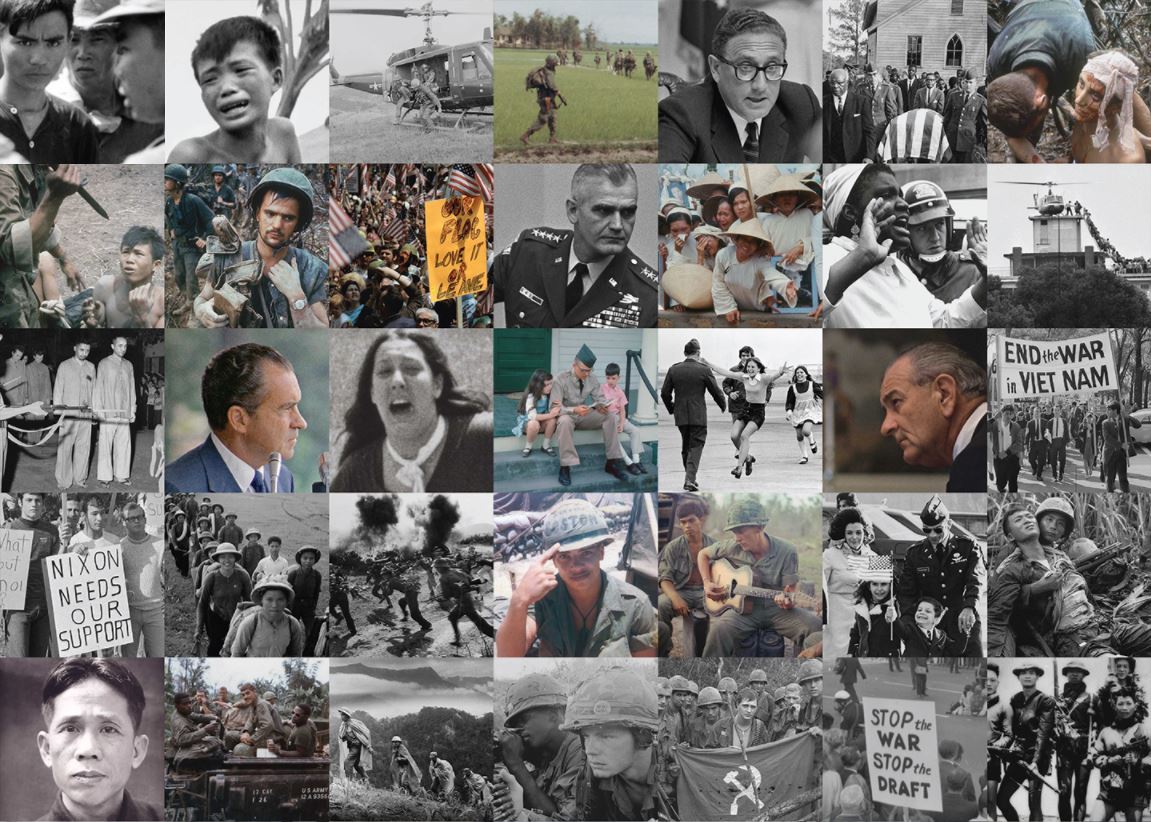Ken Burns and the Risks of Reconciliation
The opening episode of Ken Burns and Lynn Novick’s The Vietnam War shows a series of iconic moments in film with a twist: they play backwards. As viewers we are asked to rewind our understanding of the war, to start from the beginning. In the process we are supposed to build a new understanding, through which we can all find solace in a shared history. But can we?
Ken Burns likes narrative history. An authoritative voice speaks to connect hours of historical footage and talking heads. The format harks back to earlier periods in historical scholarship when historians presumed their own objectivity. The sort of editorial decisions that go into selecting who to quote, what words to use (calling the Vietnam War a “failure” or “tragedy” rather than a “defeat”, for example), and what images to put behind them, are all acts of interpretation obscured in the guise of fact and marshalled to support an interpretation. Giving the appearance of showing all sides further glosses over the biases. With subject matter as divisive as the Civil War or Vietnam War, this framing of the story ends up flattening out the events’ complexity and decades of debates.
A major challenge of teaching history at college level is that students arrive with an understanding of history not dissimilar to that found in Ken Burns’s documentaries or their school textbooks. The past is presented as a series of facts, while little or nothing is said of how or why those facts were chosen, if indeed they are agreed upon ‘facts’ as opposed to contested issues. Historians understand, and try to communicate to students, that the past is subject to debate and our understanding of it continues to change over time. The danger of narrative history is that it makes an argument and selects evidence to support that argument without acknowledging that it does so. Whether to accept the stories these documentaries tell at face value or probe them further is left to the individual. Too many, I fear, may choose the former. Neither The Civil War nor The Vietnam War ask explicit questions of their viewers. Therein lies their broad appeal and therein lies their danger.
The films are about, in Ken Burns’s words, “ultimate reconciliation”. This may come from a noble impulse to come to terms with history and establish an American canon that bridges partisan divides. Laudable though this optimism may be, reconciliation can create moral equivalence where it may not exist. It leaves us with “a popular narrative of brave soldiers fighting for their respective causes” without sufficient critical analysis of those causes. In the case of the Civil War this very narrative enabled the glorification of the Confederacy, the reimposition of white supremacy, and willful amnesia around emancipation.[1] In the case of Vietnam, the reconciliation narrative depends on mischaracterizing the anti-war movement and apparently explaining the politically-motivated decisions and lies of successive American governments as attempts by “decent people” to “muddle through” (episode 1). The hope for closure may be premature.
This is not an indictment of either film. There are good reasons for watching both and much of value to learn.[2] Rather, it is a call to see them for what they are: particular perspectives on American history. We have a rich past. It is complicated and messy, and its meaning is far from clear-cut. We can and should ask difficult questions and engage in civil debate over how to answer them. Questions – like protests – show not a disdain for the American project, but rather a commitment to bettering it. Reconciliation may be therapeutic, but it is not a cure. Privileging it risks losing a fuller examination of our past and our present.
[1] David Blight, Race and Reunion: The Civil War in American Memory (Belknap Press, 2001).
[2] I will leave it to historians of the era to evaluate the content. See, for example, Christian G. Appy’s reviews of the series for the OAH blog Process: Introduction, Episode 1, Episode 2, Episodes 3 & 4, Episodes 5 & 6, Episodes 7 & 8, Episodes 9 & 10.
